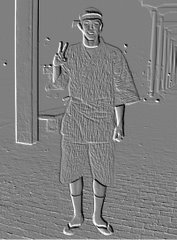Probing for Plagiarism in the Virtual Classroom
How do we go about preventing or even detecting cheating in a digitalized world of learning? Hamlin and Ryan offer some considerations and suggestions for plagiarism issues. Time restrictions are often implemented to dissuade cheating on online tests, as students theoretically lack the time to look up or copy answers this way. Discussion boards may provide additional tools to assess student writing and use as a foundation for hypothesizing about plagiarism. Students submit many samples of their own writing during this process. As participating in a discussion board is frequently a low-stakes and highly contextualized activity, students are less likely to even consider cheating. A number of online services are available to facilitate educator determination of plagiarism as well. Plagiarism.org and other plagiarism detecting web sites use digital document fingerprinting to cross-reference documents with a database containing hundreds of thousands of papers. Instructors can only hope to deter student cheating by informing students that they will collect writing samples to analyze, run term papers through plagiarism-detecting programs, administer frequent pop-quizzes, and measure participation through online discussion boards.
It is interesting to me that in teaching students valuable computer skills in a foreign or secondary language I am, at the same time, also empowering students to cheat and use services that would make avoiding learning far too easy. Fortunately, I would imagine that most term paper sites offer substantially longer and more complex papers than my students would be capable in completing within three or four years of learning another language. It should be much easier for me, therefore, to detect plagiarism in my classroom. I am also somewhat relieved in considering that many cheating services have less to offer to beginning students of Spanish or Japanese. I will consider how students in my more advanced classes may discover how to abuse ever-improving cheating services online.
Hamlin, L., and Ryan, W. (2003). Probing for Plagiarism in the Virtual Classroom. Syllabus, 07/2003.



No comments:
Post a Comment